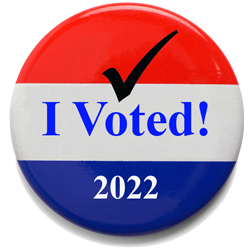Every week, 3.8 million Boston consumers watch something on TV.
Not too many years ago, when a Boston consumer sat down to watch TV, the program options were limited to what was on WCVB, WHDH, WBZ, WCVB, WGBH, WFXT, or, maybe, what was on a handful of cable channels. That was then. This is now.
Today, according to Nielsen, each time a TV is turned on in a Boston living room, the viewer has more than 817,000 options not only from broadcast stations and cable systems, but also from streaming video platforms like Netflix, Hulu, Disney+, Peacock, YouTube, Amazon, Tubi, Crackle, and FreeVee.
Of course, Boston consumers don't even need to sit down in front of their big-screen LCD, anymore. Most of the 817,000 available programs can also be viewed on their computers, tablets, gaming devices, and smartphones. But as far as viewers are concerned, though, it's all just television.
Read More
Topics
television advertising,
television,
PAY-TV,
DirecTV,
Cable TV,
ctv,
streaming video,
SVOD,
AVOD,
local television,
Streaming TV,
streaming media
Each week according to Nielsen, 3.3 million consumers tune in to a Boston radio station. This is significantly more adults than watch local TV stations, cable, or streaming video. It is more than browse social media. It is more than listen to streaming audio services or podcasts. It is more than read local newspapers.
There are two traits Boston radio listeners have in common. First, they are very loyal to their favorites, tuning-in to, on average, only 2.7 different stations each week.
Second, and of particular importance to Boston small business owners, radio listeners are returning to 'normal' at a faster rate than the general population after more than two years of pandemic.
Since the onset of the COVID-19 crisis, Nielsen has been measuring consumer sentiment in regard to normal behaviors. In a survey conducted in March of this year, 83% of adults say they are "ready to go and feel life is becoming more normal". This is up dramatically from the same time last year.
Read More
Topics
retail,
best way to advertise,
radio advertising,
consumer spending,
small business owner,
small business marketing,
small business,
small business advertising,
retail sales,
retailer,
retail store,
consumer confidence,
retail spending
Eighty-four percent of all adults say they will celebrate Mother's Day in 2022. Based on per capita forecasts from the National Retail Federation (NRF), Boston consumers are expected to spend $502.6 million on the moms in their lives. This is a 13% increase over last year.
“Consumers are eager to find memorable ways to honor their mothers and other important women in their lives and are willing to spend a little extra on this sentimental holiday,” said NRF President and CEO Matthew Shay.
The NRF spending projections indicate that Boston consumers will spend $110.6 million on jewelry and another $83.7 million on special outings such as dinner or brunch. This will be the highest level of Mother's Day spending ever in these categories.
Here is how this large pool of Mother's Day cash in Boston is expected to be distributed by all retail categories.
The NRF research indicates that men will outspend women 3-to-1 this year on Mother's Day gifts. Most of these dollars will go towards presents for their moms, stepmoms, and wives.
Of all the money spent, Boston consumers are expected to spend 36% online, 30% at department stores, 27% at specialty stores, and 23% at local small businesses.
To compete for a share of record-high Mother's Day spending this year, local business owners will need to advertise. By most key marketing metrics, the best way to reach holiday shoppers is by advertising on Boston radio.
Read More
Topics
retail,
best way to advertise,
reach,
radio advertising,
roi,
holiday shopping,
return on investment,
mother's day,
retail sales,
retailer,
retail store,
holiday advertising,
retail spending,
advertising roi
Boston area consumers are expected to spend close to $79.8 billion at retail in 2022, based on per capita spending estimates from the National Retail Federation (NRF). This would be an eight percent increase versus 2021.
To capture significant shares of the increased retail spending, the 205,625 small business owners in the Boston area would typically invest in advertising. Persistent and pernicious inflation pressures, however, are starting to gnaw away at marketing budgets.
According to the National Federation of Independent Business Owners (NFIB), businesses cite inflation as their number one problem. For many Boston business owners, uncontrollable wholesale, transportation, and labor costs are forcing retailers to raise the prices they charge their customers. But, for many retail products, inflated retail prices can drive customers away.
To limit consumer price increases and still make a profit, Boston business owners, then, are forced to cut expenses, including advertising and marketing. This means it is now imperative that the limited investments retailers can make in advertising must deliver the strongest returns possible.
According to a recent study by Nielsen, advertising on Boston radio can provide the best return on investment (ROI) for local retailers.
Read More
Topics
retail,
reach,
advertising reach,
roi,
return on investment,
reach & frequency,
retail sales,
retailer,
retail store,
retail spending,
advertising roi
There are 205,625 small business owners in the Boston area, according to the US Census Bureau. Each of these companies will need larger advertising budgets to successfully compete for a fair share of the expected explosion in consumer spending this year.
Based on new forecasts from The National Retail Federation (NRF), Boston area consumers are expected to spend between $78.9 and $79.8 billion at retail in 2022, a six to eight percent growth over the previous year.
The NRF's forecasts exclude restaurants, gas stations, and automotive dealers. Included in the numbers, though, are non-store and online sales, which, in Boston, could reach as high as $18.8 billion this year. This level of spending would be 13% more than in 2021.
Even though the rate of growth rate for 2022 is lower than the 14% jump in 2021, the NRF points out that this year's spending will be well ahead of the 10-year, pre-pandemic growth rate of 3.7%
To participate in the expected surge in retail spending will require Boston business owners to advertise. Especially if retailers want to hold their own against the continued growth of non-store and online competition.
Read More
Topics
retail,
best way to advertise,
reach,
radio advertising,
advertising reach,
roi,
small business owner,
small business marketing,
small business,
small business advertising,
return on investment,
retail sales,
retailer,
retail store,
retail spending,
advertising roi
There are about 3,000,000 registered passenger vehicles in the Boston area. Some are cars. Some are trucks. Some are Hondas. Some are Fords. Some are Teslas. Some have four doors. Some have two. Some go fast. Some go slow. Some guzzle gas. Some sip. Some are red. Some are blue.
The one thing that almost every car and truck in the Boston area have in common, though, is the AM/FM radio smack-dab in the middle of the dashboard.
The first car radio went on sale in 1930. It was an invention of the Galvin Manufacturing Company. The company named the radio 'Motorola,' and its cost was $130, around $2000 in today's dollars. By 1935, more than three million car radios had been installed.
Today, AM/FM radio is part of every car and truck on Boston area roads. In addition to the radio, many of these vehicles also provide drivers with other audio options, including a CD player, Sirius/XM, Pandora, Spotify, podcasts, and easy access to personal MP3 collections.
It is fair, then, for small business owners who depend on Boston radio to advertise their goods and services to ask: with all the audio options on today's dashboards, is anyone listening to local AM/FM radio in the car anymore?
Read More
Topics
best way to advertise,
radio advertising,
pandora,
spotify,
streaming audio,
automotive,
in-car audio,
sirius/xm,
podcasts,
share of ear,
podcasting,
car radio
Construction companies in the Boston area will need to recruit 10,306 blue-collar workers on top of the normal pace of hiring in 2022 to meet the demands of the current building market. These statistics are based on forecasts from Associated Builders and Contractors, Inc. (ABC), an association comprised primarily of U.S. firms that work in industrial and commercial construction sectors.
"The construction industry desperately needs qualified, skilled craft professionals to build America," said Michael Bellaman, ABC president and CEO. "The Infrastructure Investment and Jobs Act passed in November and stimulus from COVID-19 relief will pump billions in new spending into our nation's most critical infrastructure, and qualified craft professionals are essential to efficiently modernize roads, bridges, energy production, and other projects across the country. More regulations and less worker freedom make it harder to fill these jobs."
The construction industry's appetite for new hires in the Boston area will continue into 2023, according to ABC. It is expected that during that year, an additional 9,355 blue-collar workers in addition to the normal pace of hiring.
Read More
Topics
best way to advertise,
radio advertising,
job boards,
recruitment advertising,
employment advertising,
help wanted,
passive job seekers,
Zip Recruiter,
blue collar,
Indeed,
Monster.com,
hire qualified candidates,
construction workers
Right now, at least one of the 212,351 businesses located in the Boston area is thinking about using the phrase 'March Madness' as part of upcoming advertising and marketing plans. Why not? It's a great use of alliteration. It's a familiar term. And, it's that time of year.
A furniture store in Framingham might think it would be clever to use 'March Madness' in its commercials on Boston radio to promote a big spring sale. A non-profit in Dedham feels it would be a good way to describe its charity fun run on social media and online advertising. A sports bar in Saugus believes it would be a no-brainer to use the term in streaming video and audio ads to bring in scores of basketball fans.
It is, indeed, tempting for a Boston small business owner to use this term for advertising or marketing purposes. But, to avoid a costly legal battle, the use of this trademarked phrase should be a non-starter. Here's why.
Read More
Topics
online advertising,
social media advertising,
television advertising,
writing a commercial,
digital advertising,
streaming audio,
radio commercials,
ott,
ctv,
streaming video,
internet advertising,
Streaming TV,
streaming media,
display advertising,
search engine marketing,
sem,
intellectual property,
trademark,
copyright
Every week, 2.8 million Boston adults watch video programs delivered via the internet. This content goes by several interchangeable names, including OTT (Over-The-Top Television), CTV (Connected TV), and Streaming Video. For this article, we will refer to this type of content as Streaming TV.
Unlike traditional TV, cable, and satellite where the viewer needs to be in a fixed location, Boston consumers can access streaming TV anywhere using an internet-connected device. These include SmartTVs, Firesticks, Roku, smartphones, computers, laptops, tablets, and gaming consoles.
In all, according to Nielsen, 95.4% of Boston households have one or more devices capable of connecting to streaming TV. Although this medium is still new, streaming TV now rivals legacy media in its ability to reach local consumers.
Every week, Boston consumers are spending more-and-more time engaged with streaming TV.
Read More
Topics
television advertising,
Cable TV,
ott,
ctv,
streaming video,
SVOD,
AVOD,
advertising options,
Streaming TV,
streaming media
No matter which Boston television station or cable channel adults tune to in 2022, they can expect to be assaulted by a deluge of political advertising. Often entire commercial breaks are stuffed with back-to-back pleas and promises to secure viewers' votes.
But is advertising on WCVB, WHDH, WBZ, WCVB, or WFTX the most effective way to reach likely voters in the Boston area? Or is advertising on cable channels provided by Xfinity, DISH, DirecTV, and RCN the way to go?
The answer is neither. According to research from Nielsen, the best way to reach local adults who are most likely to vote is by advertising on Boston radio.
Every week, 2.5 million likely voters will listen to Boston radio stations. This is significantly more than watch local TV, cable, and streaming video. More that use social media and streaming audio. More than will read newspapers.
Read More
Topics
best way to advertise,
radio advertising,
television advertising,
political advertising,
Cable TV,
voters,
likely voters,
registered voters,
political rates,
local television,
republican voters,
democratic voters,
independent voters












